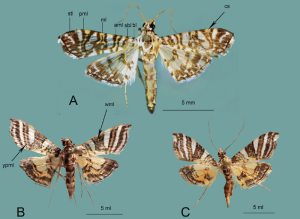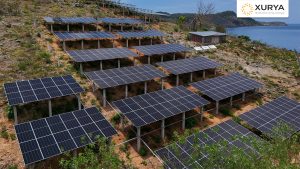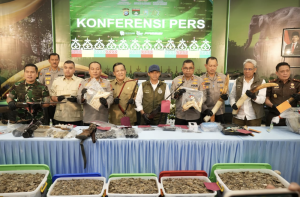Jakarta – To strengthen adaptation to the impacts of climate change, the Green Climate Fund (GCF) approved financing worth more than USD 120 million for three countries categorised as the most ecologically vulnerable, namely Ghana, the Maldives, and Mauritania.
The fund will finance local, needs-based climate adaptation projects, ranging from climate-resilient agriculture and early warning systems to water management and ecosystem restoration.
Henry Gonzalez, GCF Chief Investment Officer, stated in a press release on Friday, July 4, that the approval of these projects demonstrates the GCF’s support for country ownership of national climate action priorities. He said these investments will have a tangible impact on key sectors of climate resilience in Ghana, the Maldives and Mauritania.
The northern region of Ghana is currently experiencing significant changes in rainfall patterns amid a prolonged dry season. This has resulted in a water crisis, reduced food production and infrastructure damage from flash floods.
To address this, a USD 63 million joint project between GCF and the United Nations Environment Programme (UNEP) was launched, with a focus on enhancing the resilience of rural agroecosystems.
Measures include restoring 28,000 hectares of degraded land, enhancing access to climate data and early warning systems, and implementing water storage solutions to support dry-season agriculture.
Martin Krause, Director of UNEP’s Climate Change Division said this project demonstrates how the use of grant funding can have a major impact, particularly in developing countries facing acute climate stress.
Maldives: Island nation threatened with drowning, mobilises adaptation projects
The Maldives is recognised as one of the countries most vulnerable to climate change due to sea level rise, extreme storms and coastal erosion. The impacts extend to key sectors, such as fisheries, agriculture, and tourism, that underpin the national economy.
UNEP and international partners are developing a USD 25 million project in the island nation to strengthen the resilience of coastal communities and establish community-based adaptation systems.
Krause said that UNEP’s focus is on developing solutions that are contextualised, locally led and science-based.
Mauritania: Sand dunes on the move, food security under pressure
In Mauritania, climate challenges are characterised by the rapid movement of sand dunes, siltation of water sources, and damage to roads and education infrastructure. The country still imports up to 85% of its food due to low domestic agricultural output.
To this end, UNEP is launching a USD 33 million project, including a USD 30 million grant from the GCF, to be implemented in four vulnerable regions: Aoujeft, Rachid, Tamcheket, and Nema.
The project will include the construction of green-grey infrastructure to control sand erosion, improved water access for irrigation, and land rehabilitation and climate-resilient agriculture.
An estimated 85,000 people will directly benefit from the project, while 2,100 hectares of land will be protected. The project will also support Mauritania’s contribution to the Great Green Wall initiative, a massive ecological project in Africa aimed at combating desertification.
This funding from the GCF emphasises the importance of locally-based climate adaptation measures amid the growing threat of global climate change. By involving developing countries directly in project design and implementation, this approach is considered more sustainable and effective. (Hartatik)
Banner photo: DreamArchitect/shutterstock.com















